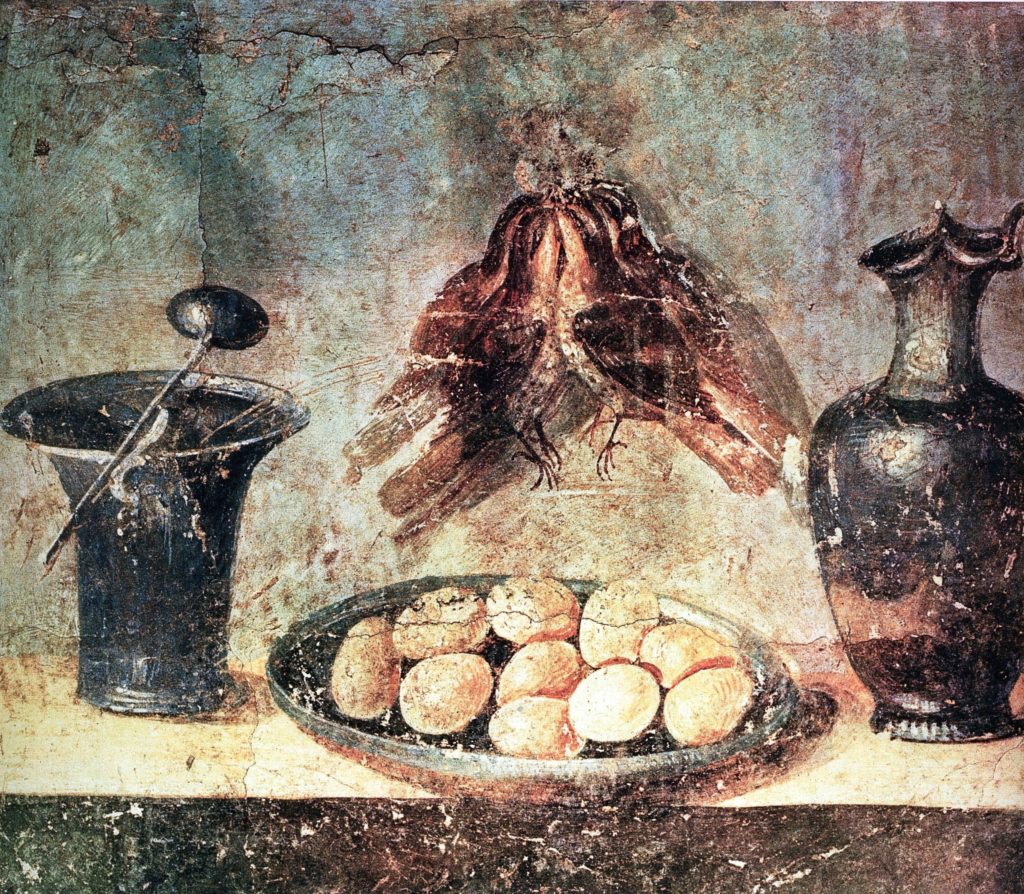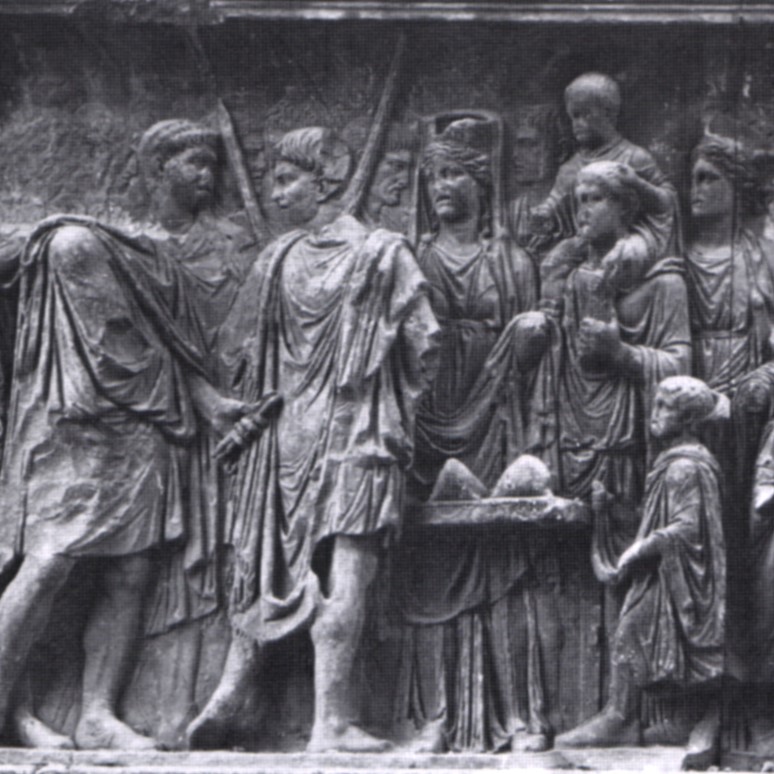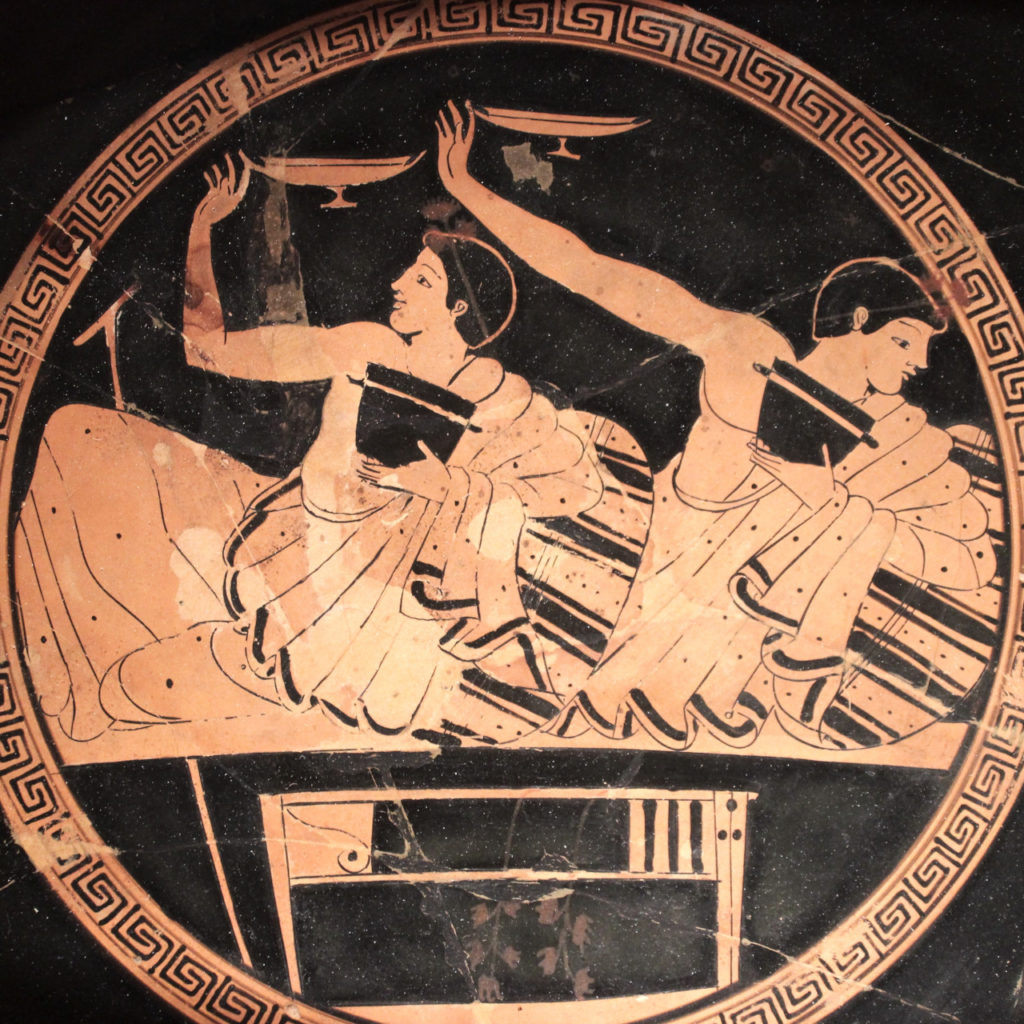
Translated from French with DeepL (please notify us of errors)
Ab ovo usque ad mala1. A good and copious Roman meal had to honour this expression: ‘from the egg to the apple’. Usually eaten as a starter during the gustatio, the egg could accompany an entire menu, right up to the dessert. In Apicius’ Culinary Art, the ingredient is mentioned a hundred times, but only once as a dish in its own right, a dessert: milk omelette, drizzled with honey2. This is because the egg, which is indispensable for many pastries, is also an excellent binder for sauces and fillings.
Far from the culinary splendour described by Apicius, eggs were a common food item for the average Roman. They could eat eggs of several species: geese (the most sacred), pheasants, partridges, ducks, pigeons, and finally hens (the most common). The eggs could be eaten raw, boiled, soft-boiled, hard-boiled or fried… A small refinement, according to Martial3, was to cook them in the ashes of the fireplace (and not in the embers, as they were too hot). After about a quarter of an hour, the spinning top test is used to judge whether the egg is cooked: it spins for a long time, otherwise it stops quickly.
It is almost self-evident to point out, but in a diet low in animal meat such as that of the Romans, the egg provided an essential supply of protein. The Romans therefore selected hens that were capable of laying a lot of eggs.
Culinary values, taste values, nutritional values. And symbolic values? Also! During the March equinox, the Romans hung up coloured eggs to celebrate the awakening of nature, and thus renewal.
1 Literally ‘from the egg to the apples’, i.e. ‘from the starters to the dessert’ or ‘from the beginning to the end’, the expression is found in Horace, Sermones. 1, 3, 6, and Cicero, Epistulae ad familiares, 9, 20, 1.
2 Marcus Gavius Apicius, De re coquinaria, VII, XI, 8 (303): Ova spongia ex lacte: ova quattuor, lactis heminam, olei unciam in se dissolvis, ita ut unum corpus facias. In patellam subtilem adicies olei modicum, facies ut bulliat, et adicies impensam quam parasti. una parte cum fuerit coctum, in disco vertes, melle perfundis, piper adspargis et inferes. “milk omelette: beat together four eggs, a hemin of milk and an ounce of oil until completely amalgamated. Put in a thin frying pan a little oil which you will boil and pour in your preparation. When it’s done on one side, turn it out onto a plate, drizzle with honey, sprinkle with pepper and serve.” This is one of the very few recipes that indicate the quantities.
3 Marcus Valerius Martialis, Epigrammata, I,55,12: pinguis inaequales onerat cui vilica mensas / et sua non emptus praeparat ova cinis? “While a fat farm girl loads the wobbly table for him, and embers that did not have to be bought cook his own eggs? This method of cooking eggs is also indicated by Ovid. Publius Ovidius Naso, Metamorphoseon libri, VIII,667: ovaque non acri leviter versata favilla, “And eggs turned slightly under an ash not too hot”.
Other articles in English from the Nunc est bibendum blog








